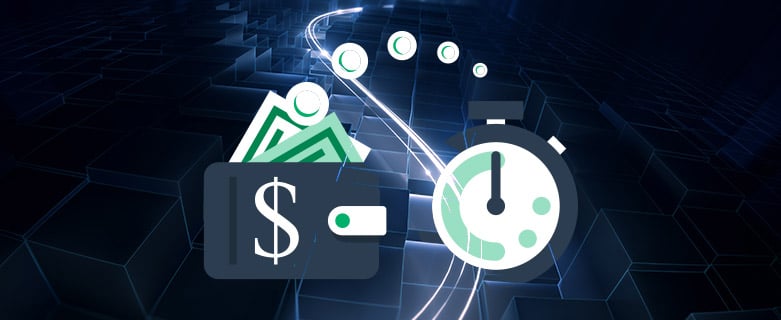
Respond to Payment Disputes with Rapid Dispute Resolution
By Chris Alarie on Feb 11, 2021
One of the key impediments to proper chargeback mitigation are the inconsistent, unclear, and generally confusing timelines involved in every chargeback-related process. With different policies depending on the card brand, issuer, and acquirer, a merchant can easily find themselves lost in the swirling tempest of payment disputes, losing track of how much time has passed since a disputed transaction, the span of time between the transaction’s completion and the consumer’s dispute, and any deadlines for making decisions regarding a chargeback dispute. A merchant may even find themselves in a circumstance in which they are not informed of a chargeback until it is nearly too late to compile the necessary documentation to dispute the chargeback.
What is Rapid Dispute Resolution?
Into the breach steps Rapid Dispute Resolution (RDR). A new payment dispute tool from Visa and Verifi, RDR is a fully automated dispute management solution. It is a new evolution of the Cardholder Dispute Resolution Network (CDRN) that is familiar to many merchants. Like CDRN, it is a valuable tool that can help respond to payment disputes before they become chargebacks.
How Does It Work?
RDR works such that, when an issuing bank is set to process a chargeback, RDR prompts the acquiring bank to issue a credit to the customer rather than processing it as a chargeback. It works on the same track as a chargeback—think of it as a shield in between the dispute and chargeback. As an automated system, RDR handles these transactions without the merchant’s direct involvement, protecting the merchant from unnecessary chargebacks that slip through the cracks.
RDR allows merchants to set parameters and rules for when these credits are automatically processed based on the following transaction attributes:
-
Issuer BIN
-
Transaction Date
-
Transaction Amount
-
Transaction Currency Code
-
Purchase Identifier
-
Dispute Category
-
Dispute Condition Code
As of right now, RDR is only available for Visa transactions.
How Does RDR Work With Other Dispute Resolution Tools?
RDR is just one tool in a merchant’s kit. As with any tool, it works well for certain jobs and poorly for others. For merchants who utilize the full Verifi toolkit—RDR, CDRN, and Verifi Order insight (VOI)—it is important to know where RDR fits.
If VOI is available for a particular transaction dispute, that would be the first tool for a merchant to utilize in the dispute workflow because VOI offers the possibility of convincing the issuer to drop the dispute entirely, without removing money from the merchant’s account.
RDR comes after VOI in the dispute workflow, as it is a solution for circumstances in which returned payments are inevitable. If the dispute can’t be averted through VOI or other methods, RDR allows the consumer to recoup their payment without subjecting the merchant to a chargeback.
CDRN, as an ancestral version of RDR, serves as an alternative solution for circumstances in which RDR is not available, either because the issuer has not upgraded to RDR or because the transaction was made with a payment card from a brand other than Visa. Like RDR, CDRN is a non-chargeback method of returning payment to a consumer and should only be used if VOI is unavailable or has been unsuccessful .
Cost/Benefit
The cost of a thing is the amount of what I will call life which is required to be exchanged for it, immediately or in the long run.”
― Henry David Thoreau, Walden
No human endeavor can ever be wholly good... it must always have a cost.”
― William Golding
As with nearly all things, RDR comes with a cost. In this case, the cost is literal, not metaphorical. RDR is a system for returning payment to the consumer. By definition, using RDR means a merchant is losing money from their account. However, that cost is worth the benefits that RDR offers.
Returned payments are an inevitable part of doing business. Whether due to fraud, customer dissatisfaction, or some other issue, every merchant will face circumstances in which they must return payments to consumers. Of the multiple methods by which such a return could occur, a chargeback is by far the most damaging to a merchant. In addition to the lost revenue, a chargeback brings fees, reputational damage, and an increased chargeback ratio, which could have deleterious consequences down the road.
RDR saves merchants from all these additional consequences by preventing chargebacks and processing return payments by other means. A payment returned through RDR does not carry chargeback fees, does not increase a merchant’s chargeback ratio, and, due to its automated working process, does not use significant operational resources. RDR frees merchants to devote their time and energy to the other efforts that make their businesses function.
Why MidMetrics?
MidMetrics is expertly designed to be easy to use, and it requires minimal IT effort for merchants to implement. It integrates with payment processors, gateways, CRMs, and service providers via API, and uses secure credentials to establish direct connections with card networks and banks. On the user end, MidMetrics automatically gathers and aggregates relevant data from all available sources, normalizing and presenting it in readable reports that present clear and actionable insights to merchants.


